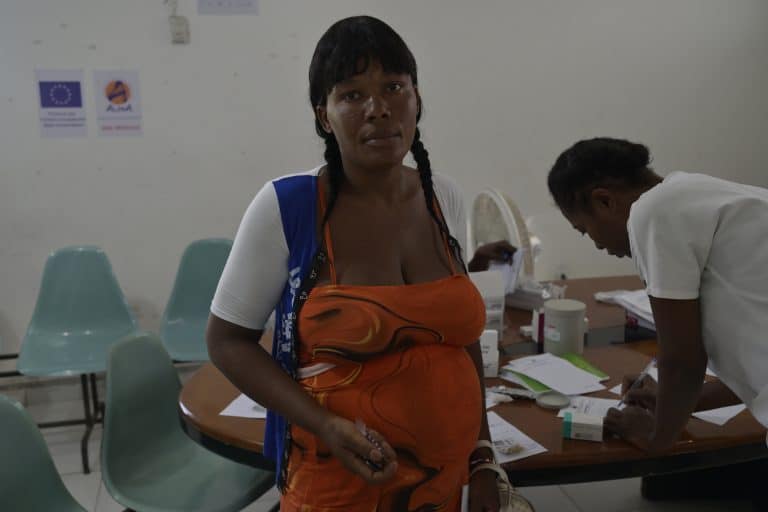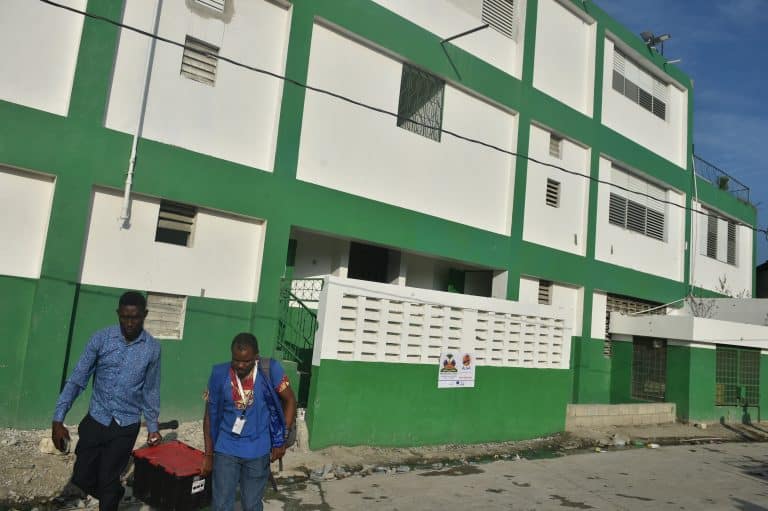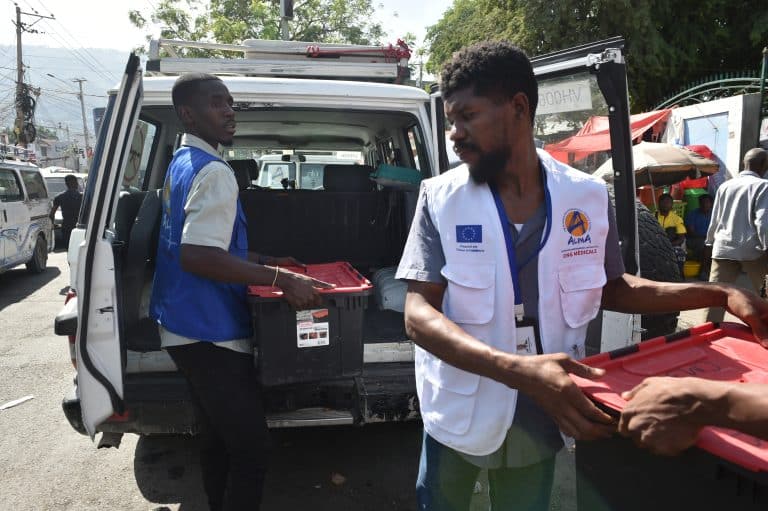In Sénou, ALIMA and its partner AMCP-SP (the Medical Alliance Against Malaria–Population Health) support displaced families, mainly from the Mopti region. These families fled the attacks, leaving behind their homes, livestock, businesses, and loved ones. Thanks to our mobile clinics, our teams provide free and quality medical and nutritional care: healthcare, malnutrition screening for children under five, and mental health support for populations impacted by many traumas.
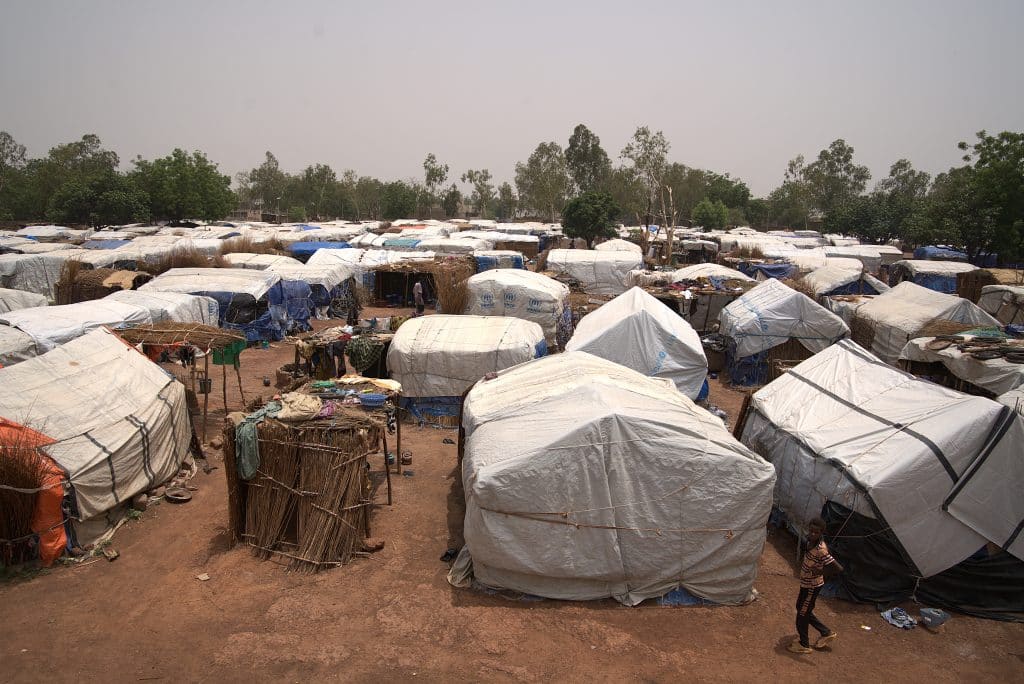
An overcrowded site: 3.5 m² per family
According to the Social Development and Solidarity Economy Service on site, the Sénou site currently shelters 1,254 people, including 368 households. There are 411 tents, each 3.5 m², which can sometimes accommodate 5 to 8 people, due to a lack of space.
Mariam, Rootless, Dreams of a Salon and Independence
Mariam Sow, a 30-year-old mother of six, has been living at the Sénou site for six years, after fleeing her village of Bankass (in the Bandiagara region) due to armed violence.
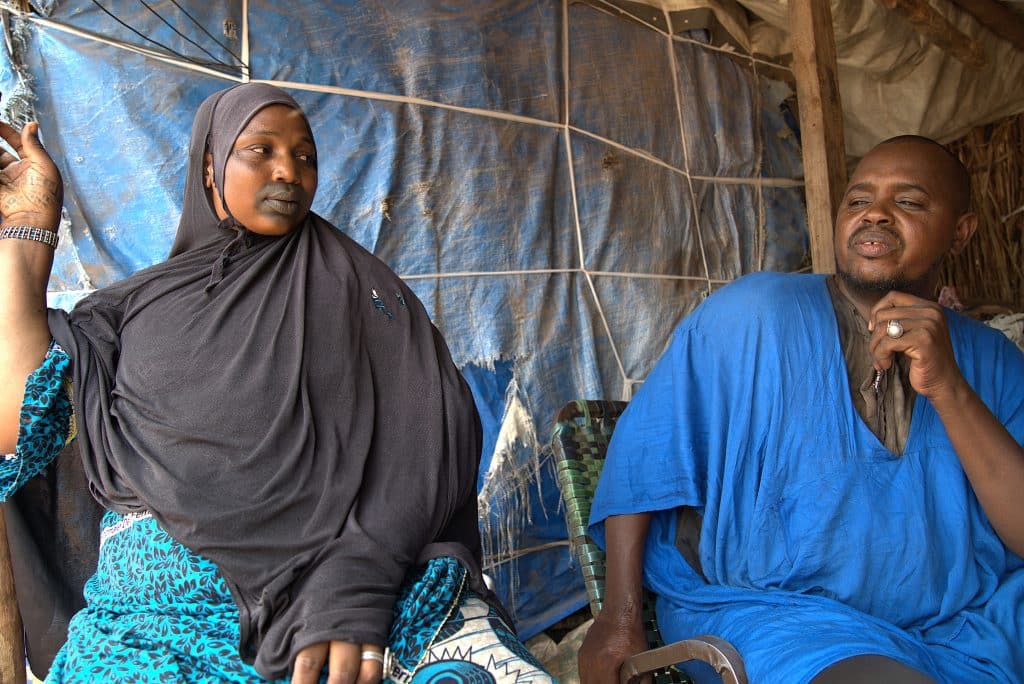
“I share a tent of less than 4 m² with my husband and six children, but we have the support of my mother-in-law. She is also displaced and sometimes takes the children at night.”
Her husband, Kalifa Diakaté, adds: “I don’t want to go back to where I came from, but I would like to leave the camp and settle in the city, in Bamako.“
Mariam continues: “Before the conflicts, my husband was a shepherd and I ran a small shop. The attacks destroyed everything, even our herd.”
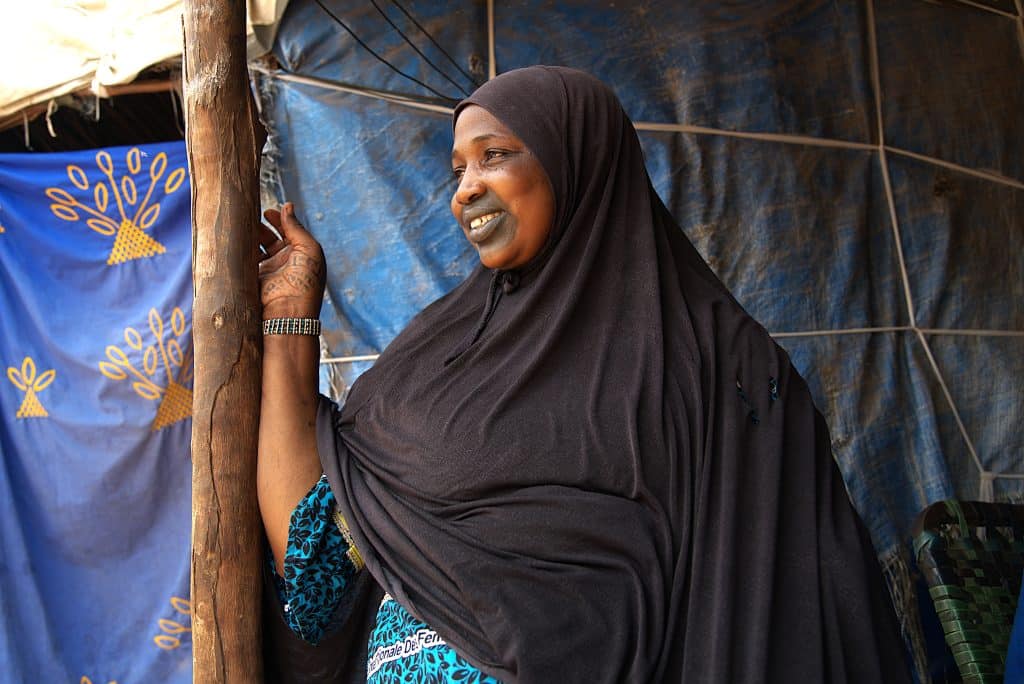
Today, she is slowly starting over: “I now sell couscous and curd in the camp. It’s not always easy, but I stay hopeful.”
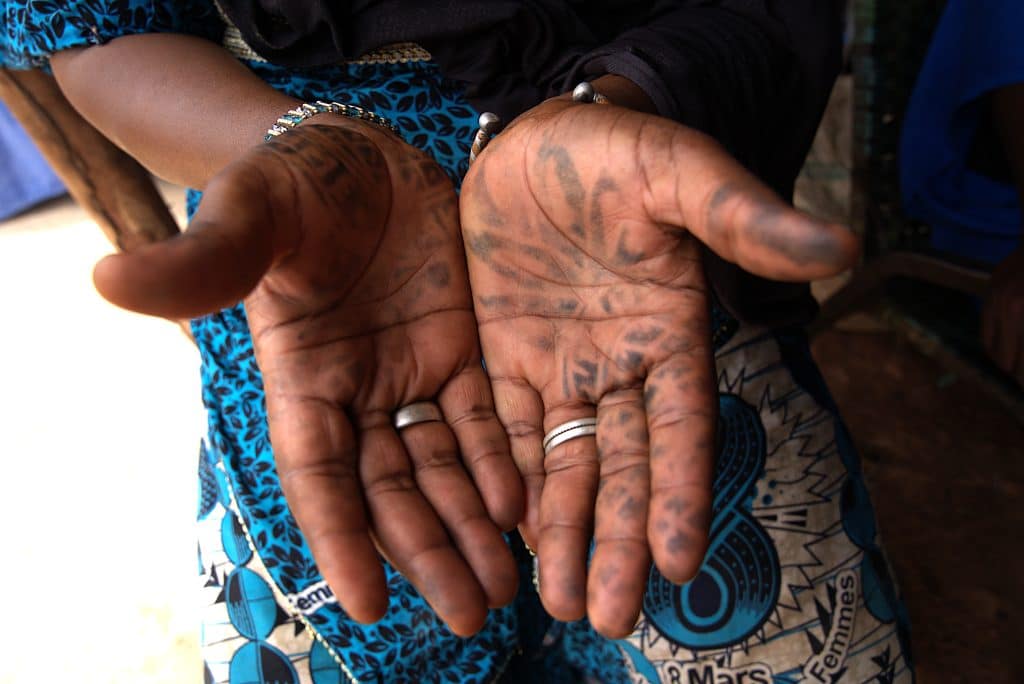
“When all of this is behind us, I would like to open a hair and beauty salon in town, where I can do henna for women. I already know how to braid, even if I still have to learn how to make henna.”
Teams Committed to Serving Their Community
Kanou: “You Quickly Grow Attached to the People Here and Their Stories”
Kanou Diarra, a 45-year-old mother of six, has been working as a nutrition assistant for ALIMA/AMCP-SP since 2022. Originally from Bamako, she previously volunteered as an assistant nurse for many years. “When I see mothers with their children, happy and healthy, it fills me with joy. I know this is my calling!”
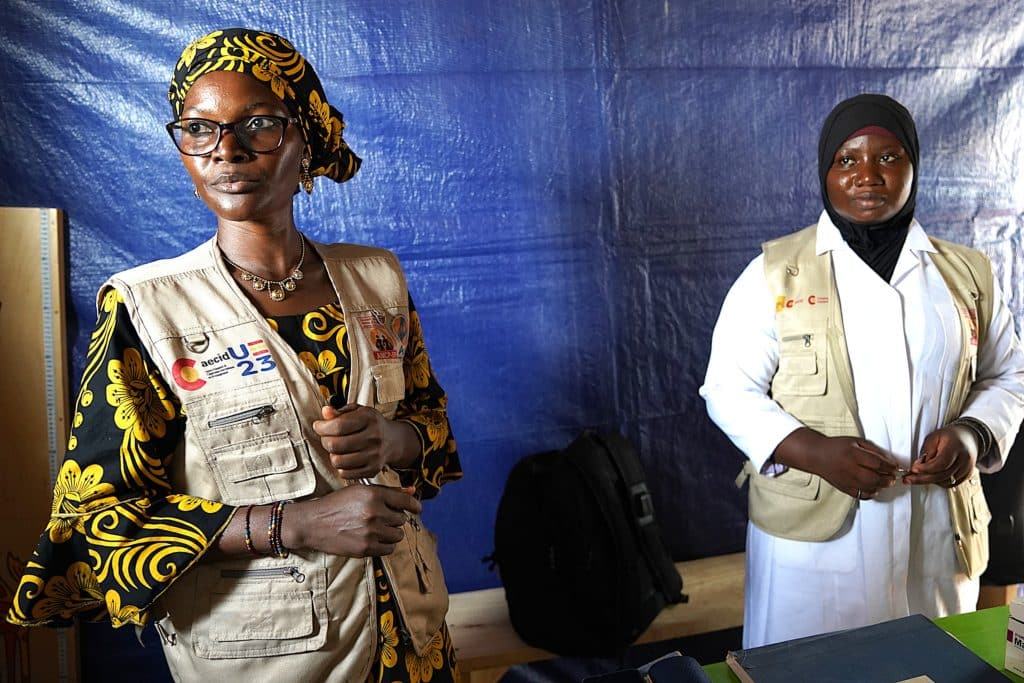
Kanou Diarra carries out essential activities at the Sénou site: screening and treating malnutrition, raising awareness about hygiene, training mothers to recognize early signs of malnutrition in their children, distributing therapeutic nutritional food, malaria prevention, psychosocial support, etc.
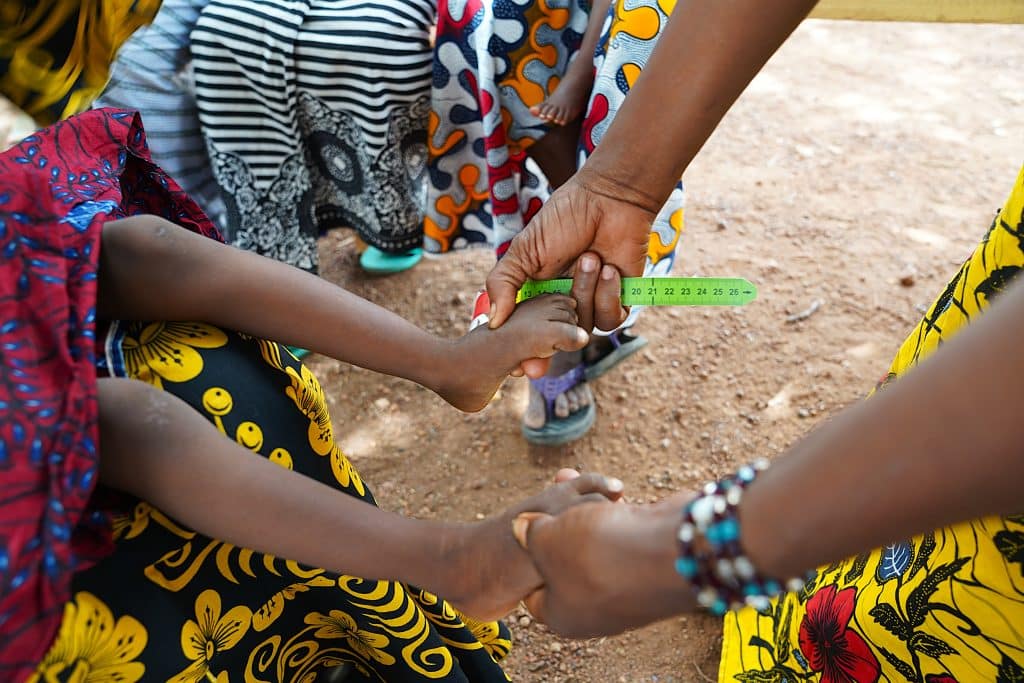
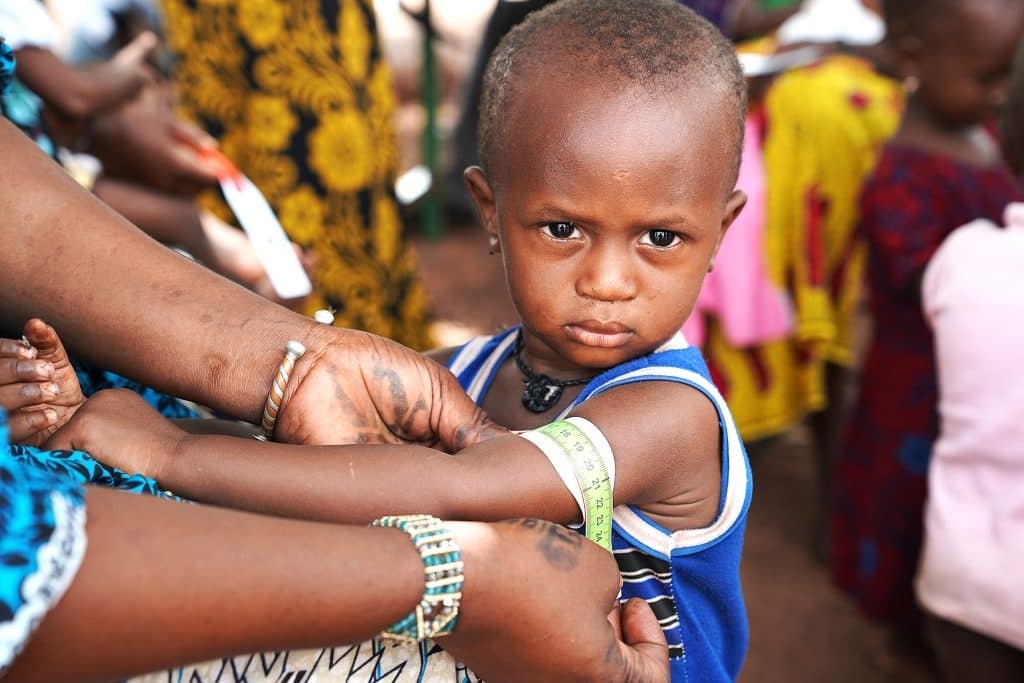
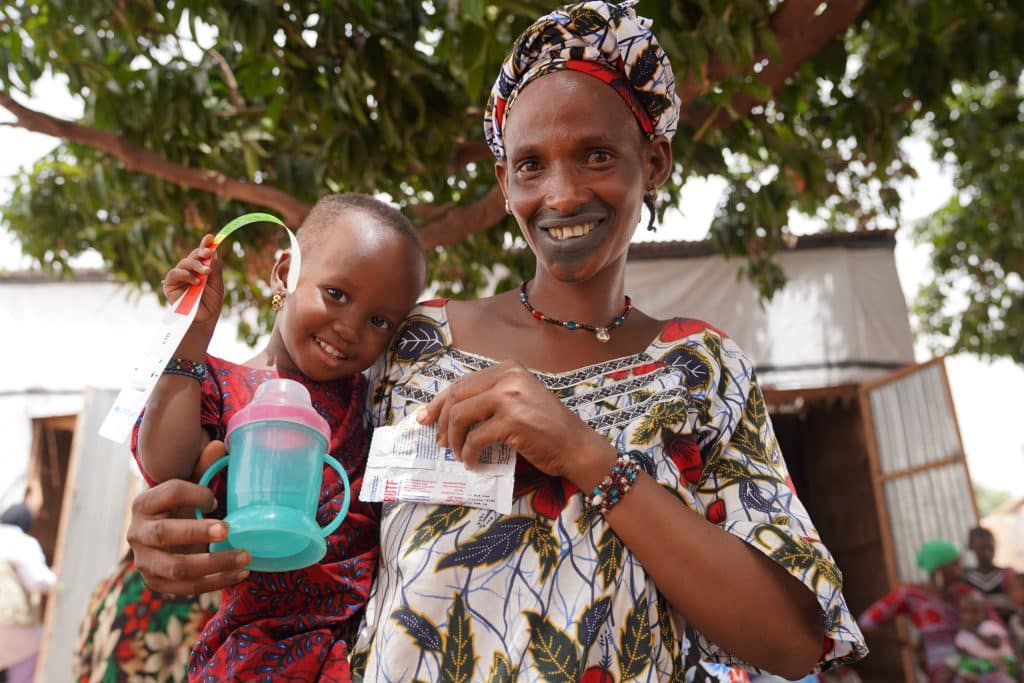
Awareness session led by Kanou Diarra. Mothers come with their children and learn how to detect malnutrition signs with the MUAC-Mothers bracelet. Those diagnosed with malnutrition receive medical care and therapeutic nutritional foods. Credits: Cora Portais / ALIMA
Despite the scorching heat, Kanou walks to the site every day:
“Even when I’m tired, I walk nearly an hour to get here. I do it for myself, for my work, for my family, and so that displaced people can access proper healthcare.”
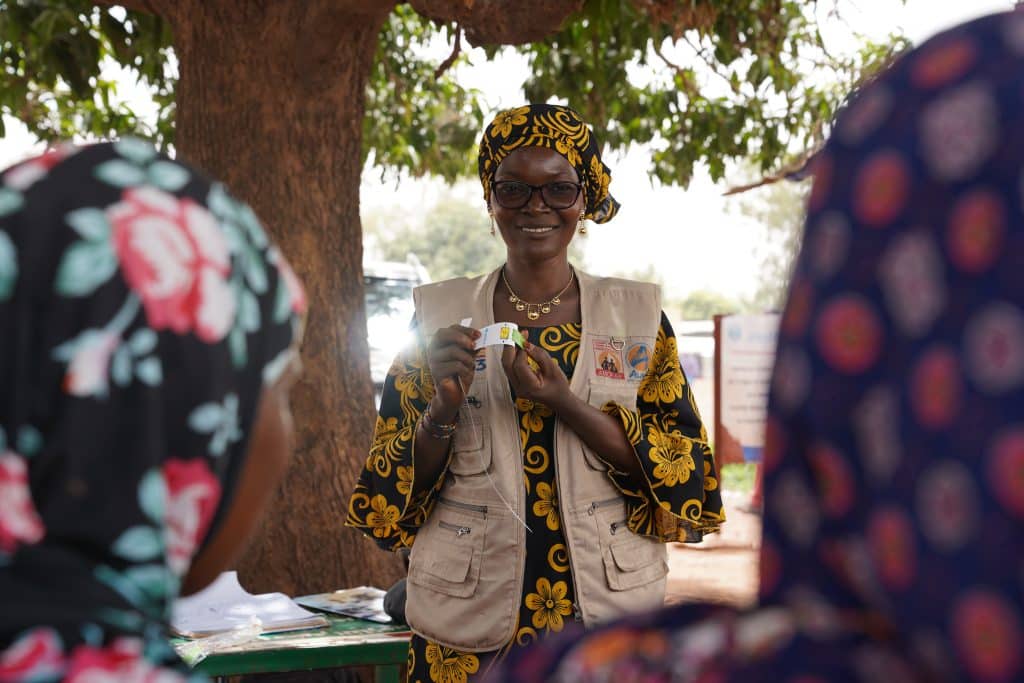
Oumou, Witness and Actor of Resilience
Oumou Marra, 26, a state-certified nurse, was recruited six months ago to strengthen the ALIMA/AMCP-SP team in Sénou.
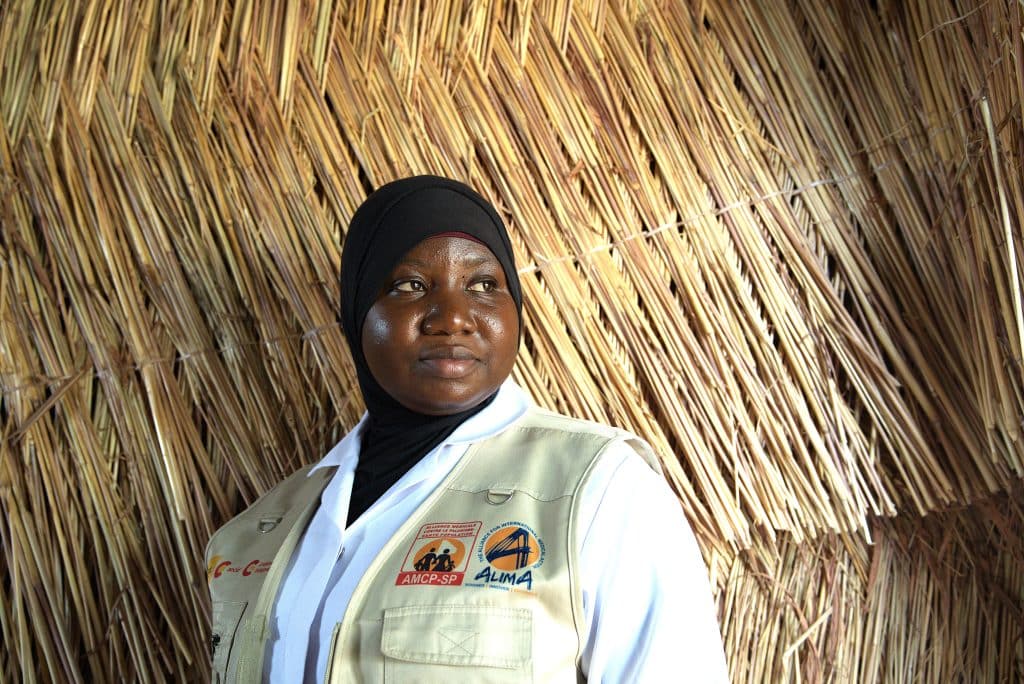
“Although access is difficult, especially during the rainy season, I go to the site every day by motorcycle taxi to carry out consultations. Being Malian helps me build strong connections with displaced people.The project allows us to monitor children’s health. Many suffer from malnutrition-related illnesses.”
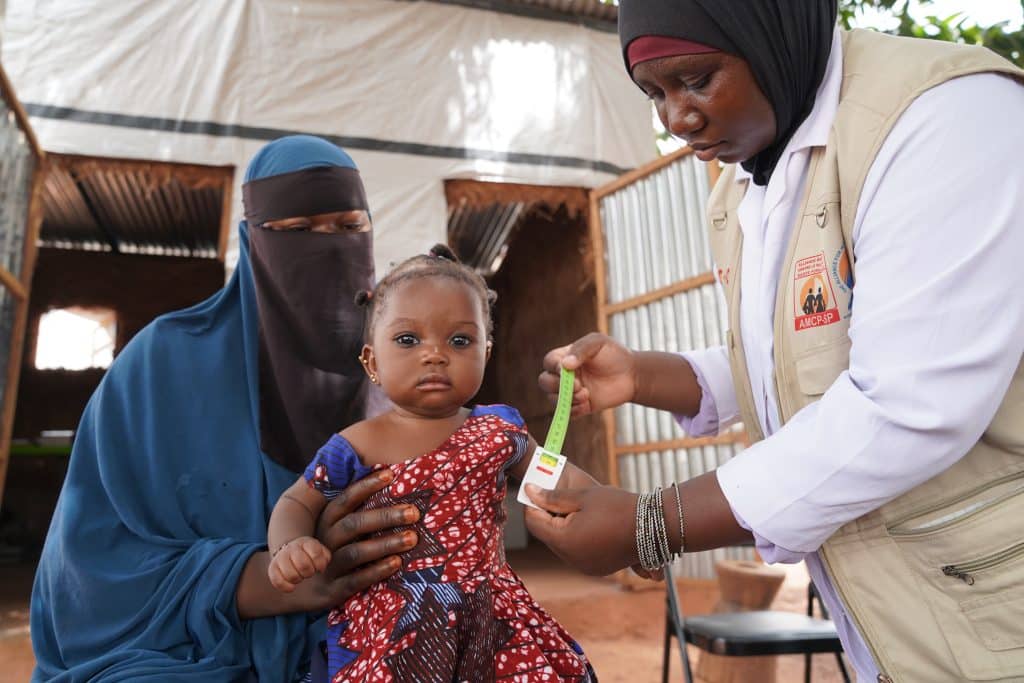
Oumou highlights the difficult living conditions:
“Access to healthcare is limited, there is a lack of clean water, tents are overcrowded, and school-age children need to be educated. Many don’t have a birth certificate. You quickly grow attached to the people here and their stories.”
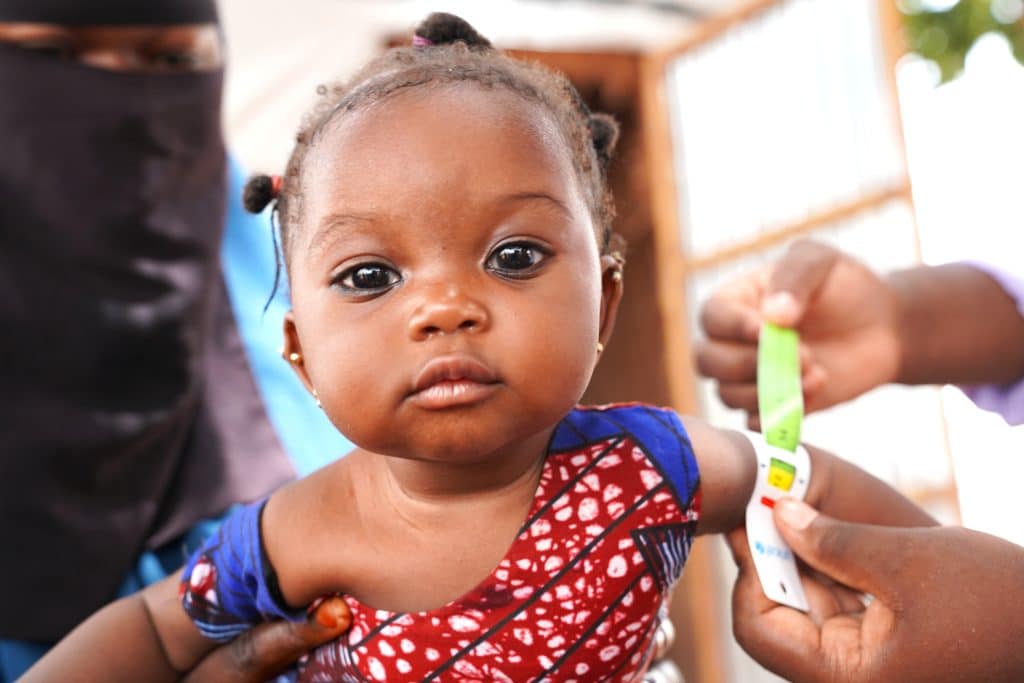
Staying in School, Dreaming of a Better Future
Among the 1,254 people living at the Sénou displacement site, the Social Development and Solidarity Economy Service reports that there are twice as many women (317) as men (167), many of whom lost their lives during the attacks. The most striking figure is the number of children: 770, of whom just over 200 are enrolled in the on-site school.
Four Young Girls and Their Dreams
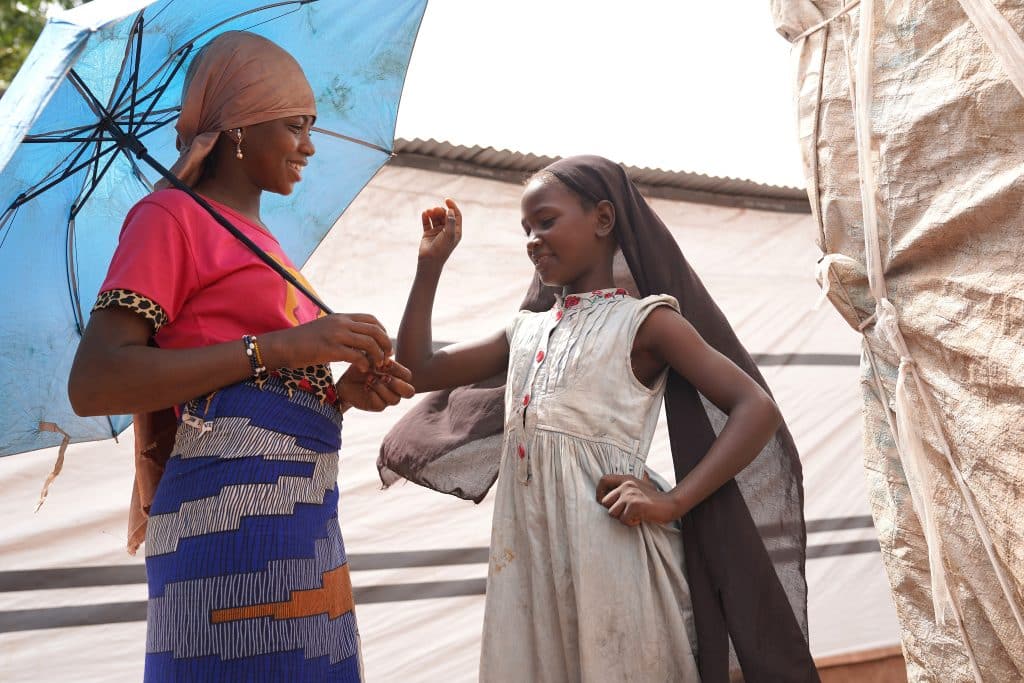
After visiting their tents and meeting their families, an impromptu photo session takes place with four young girls.
Awa, 13: Heal to End the Losses
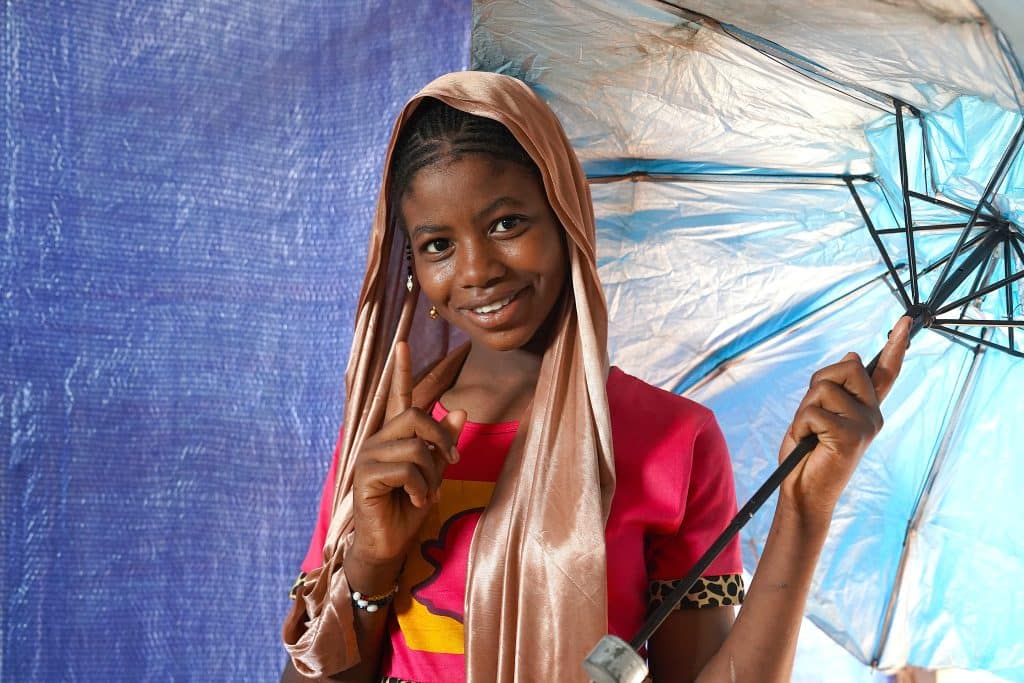
“I want to become a doctor, to save the lives of my loved ones and others. I’ve seen doctors help us here, and I want to do the same.”
Fanta, 13, Still in Childhood
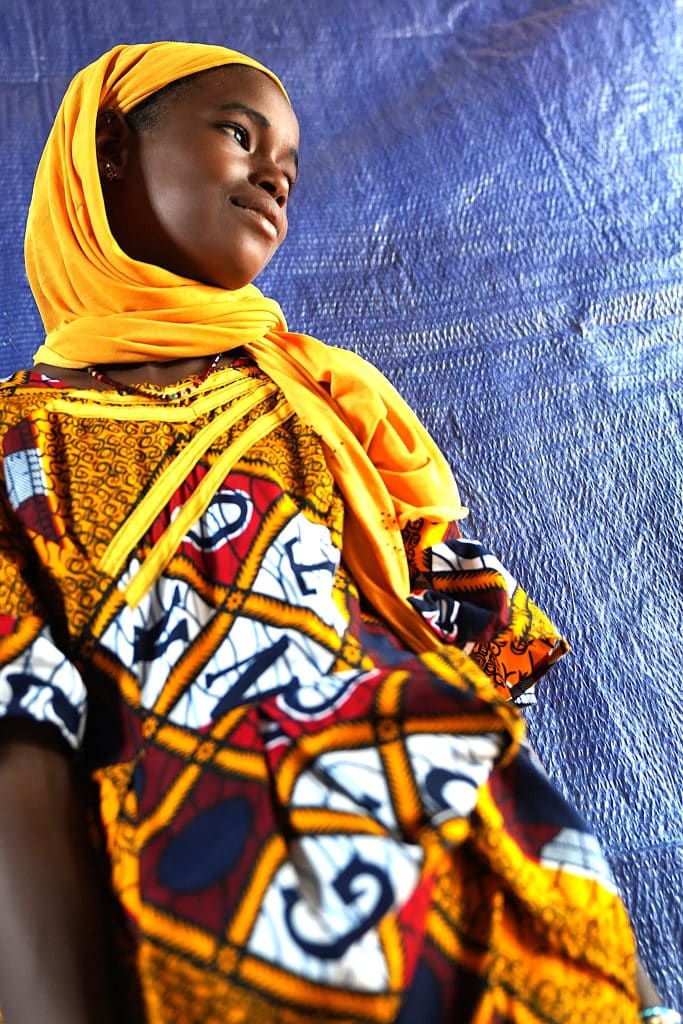
“I don’t really know what I want to do yet. I still have time to decide. I like spending time with my friends and having my picture taken.”
Khadidja, 13, Dreams of Politics
Khadija is Djenaba’s older sister. She lives on the IDP site and is one of the 200 children attending the on-site school.
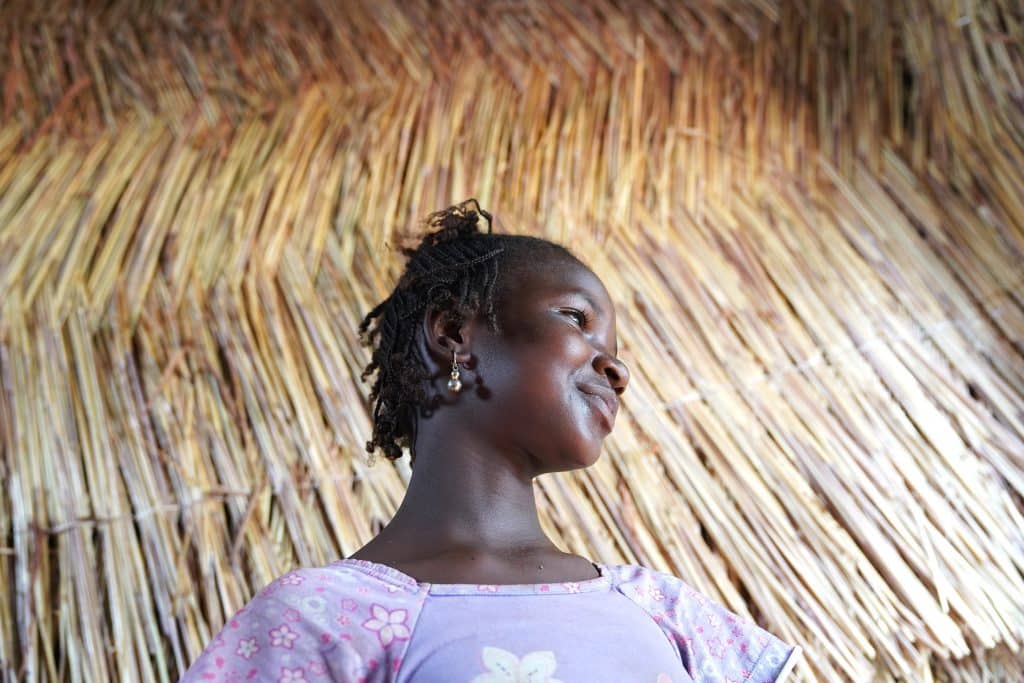
“I already know I want to go into politics. I want to have an impact, listen to people, and make a difference. Why not start by becoming a mayor?”
Djenaba, 11, Passionate About Mathematics
Djenaba is Khadija’s little sister. She lives on the site with her mother, her older sister, and her grandmother, who inspires her.
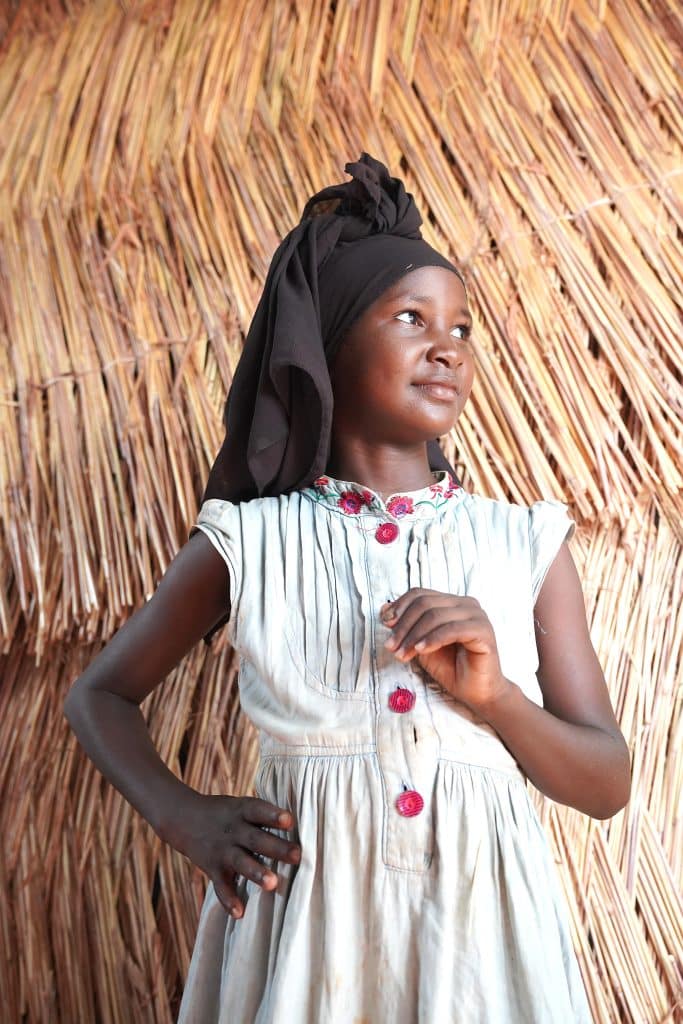
“I love school and I want to become a teacher so I can share what I’ve learned with other children. My favorite subject is math.”
Aminata, a Pillar for Her Granddaughters
Aminata Bolly, grandmother of Djenaba and Khadidja, watches over her granddaughters every day. She refuses to let them drop out of school and motivates them to pursue their dreams and obtain diplomas.
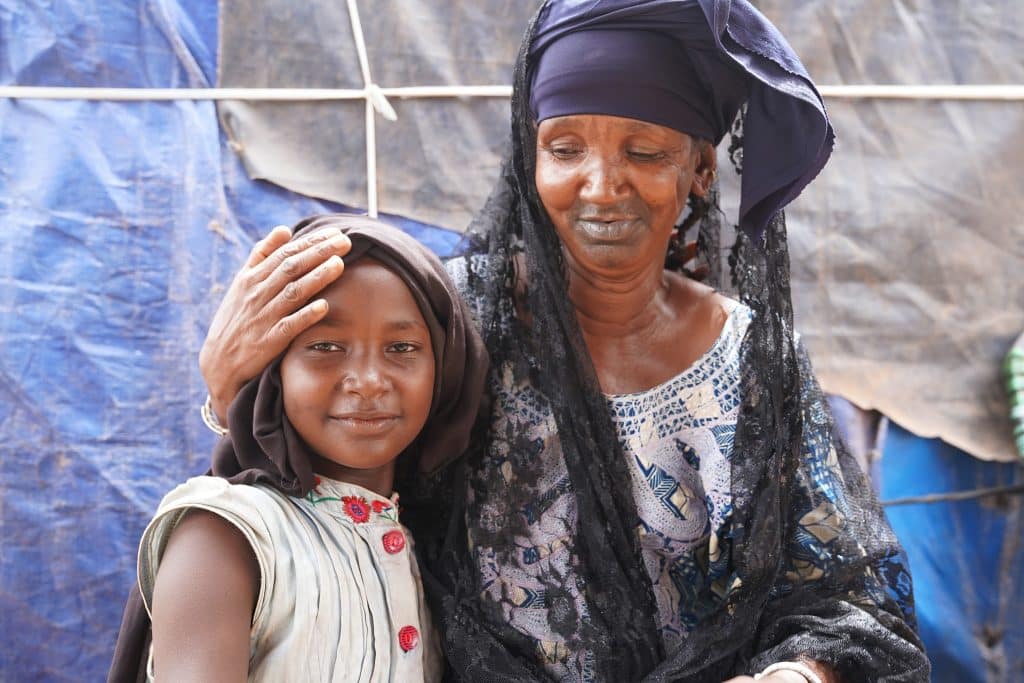
“I’m here to protect them in the camp. My dearest wish is for them to grow up fulfilled and independent. If one wants to go into politics and the other wants to become a teacher, they can do it if they stay in school. They are strong and smart.”
“I believe in them and I believe in their future. I tell them every day. Even if we have been living in tents for six years, it will be fine because nothing is impossible.”
ALIMA has been present in Mali since 2011. In 2024, our teams provided care to 154,520 people. In partnership with AMCP-SP, we fight malnutrition, support women’s and pediatric health, respond to epidemics and emerging diseases, and drive research and innovation. The humanitarian situation remains critical, marked by ongoing armed conflicts, mass displacement, and a severe nutrition crisis.
This mobile clinic project at the Sénou IDP site in Bamako was made possible thanks to the financial support of AECID (Spanish Agency for International Development Cooperation).
Photos and text: Cora Portais/ALIMA


